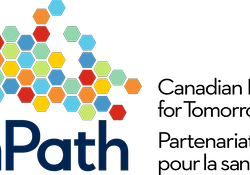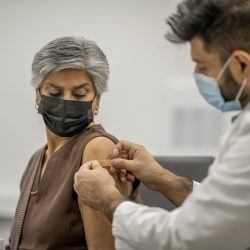Webinar: Who gets counted? Examining representativeness in Canadian COVID-19 serosurveillance studies
Date: September 10, 2025Time: 2-3pmASTLocation:us02web.zoom.us Register for the webinar About the webinar During the COVID-19 pandemic, researchers used a range of creative recruitment strategies to carry out serological surveillance, but how representative were these study populations, and what can we learn from them? In this webinar, Dr. W. Alton Russell, Matthew Knight, and Dr. Yuan Yu will present findings from their recent BMC Public Health study comparing the sociodemographic characteristics of six SARS-CoV-2 serosurveillance studies in Canada, including one using CanPath data. They’ll explore how study design influenced representation across age, sex, urban/rural location, material deprivation, and racialized groups, and why understanding these patterns is essential for equity-informed public health research beyond COVID-19. This webinar is ideal for public health researchers, epidemiologists, data scientists, and others interested in study design, health equity, and population-based surveillance. About the presenters W. Alton Russell, PhD, directs the data-driven decision modelling lab, which aims to enable the efficient, effective, and equitable use of finite healthcare resources using data science and decison modelling methods, in the McGill School of Population and Global Health. As Scientific Advisor to the COVID-19 Immunity Task Force until 2024, Dr. Russell led projects to understand and correct for bias in studies of SARS-CoV-2 infection and immunity related to representativeness, sample collection method, and assay performance. Matthew Knight, MSc, is the Data Manager of the Canadian Co-infection Cohort study at the Research Institute of the McGill University Health Centre, where he works alongside team members to maintain study databases, implement and document data harmonization initiatives, and support investigators with study analyses. He recently completed his Master’s degree in Epidemiology in the data-driven decision modelling lab, where he analyzed the sociodemographic representativeness of six Canadian serosurveillance studies under the supervision of Dr. Russell. Yuan Yu, PhD, is a statistician previously joined Alton’s decision modeling lab at McGill for serosurveillance study collaborating with Canadian Blood Services. With a background in Bayesian statistics and survey sampling, she has a broad interest in Bayesian application fields utilizing healthcare data resources.







